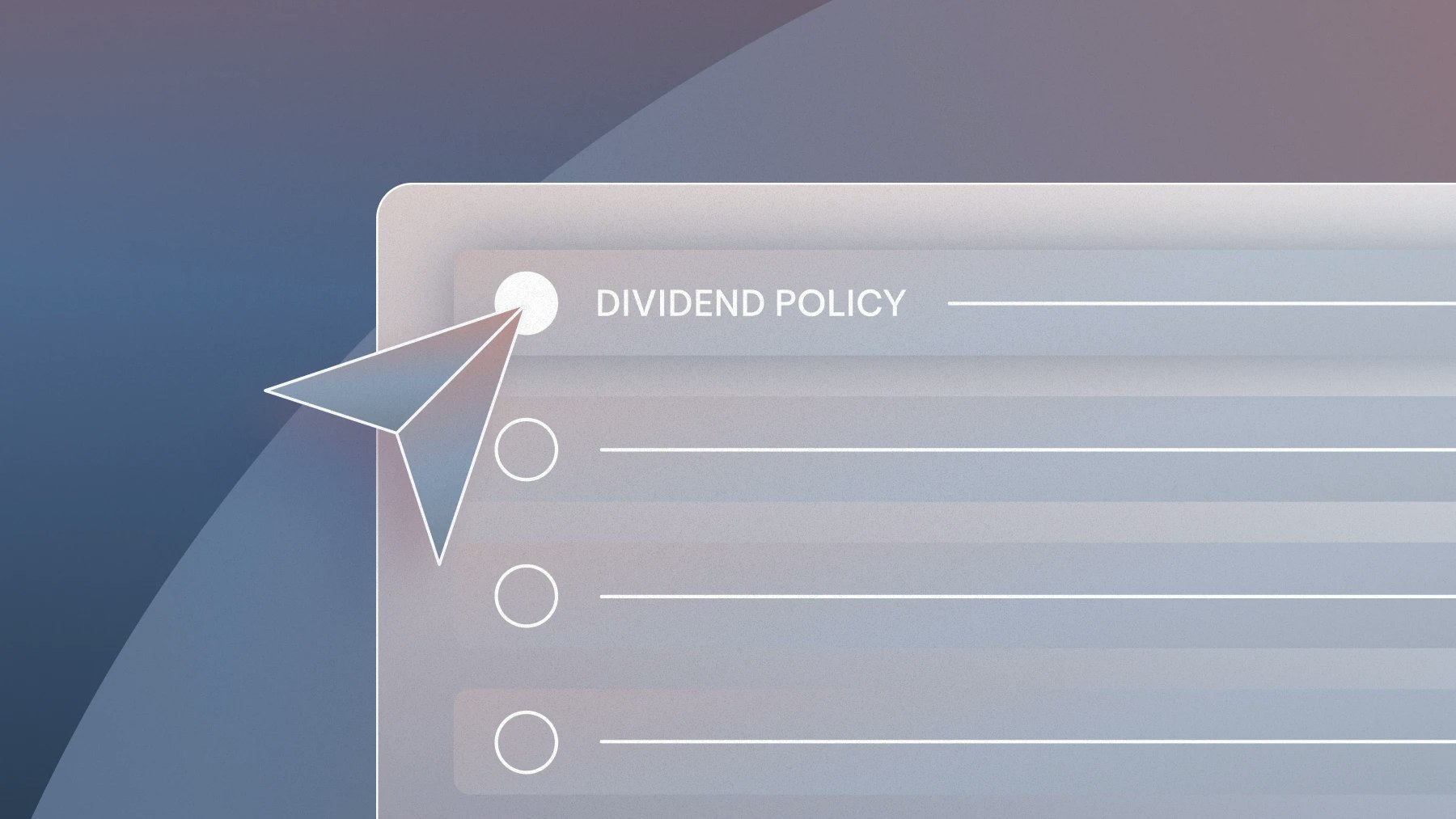Understanding the venture capital term sheet

A term sheet is a nonbinding agreement that a venture capital (VC) investor will give you when they’re considering an investment. Typically, this sheet comes from your lead investor—the source that's coming in with the highest amount of money.
The sheet will set the terms of your deal, including the funding amount, company percentage stake, liquidation preferences, and valuation. It will also set the tone for your company's future, whether it's during the rest of your round, at later venture capital rounds, or when you're trying to take on new forms of financing.
In this article, we've explained the most important terms to know before negotiating and signing a term sheet. If you want to learn about the process of raising venture capital, including how to find the right investors and build a pitch deck, read venture capital 101.
Economic terms
Warrants: Also known as the equity kicker, warrants allow investors to buy the stock of your company at a fixed price at a future date or round, until the expiration date.
Employee option pool: This pool will specify the percentage of shares that will be reserved for the company’s employees.
Vesting: Vesting indicates the period after which an employee, founder or investors receive rights to shares or stock options in the company. This period can be time-based or measured on hitting a milestone. Investors sometimes include vesting for founders in the term sheet, as a way to keep entrepreneurs committed to their company.
Valuation: A valuation can quantify the worth of a startup based on factors like the company stage, market opportunity, competitors, founder experience, the current economic climate, and the point at which the venture capital firm is investing.
Pre-money valuation (aka price): This is the value of the company determined at the time of the fundraise before the new financing.
Post-money valuation: This is the value of the company following the new financing.
Anti-dilution: Keep an eye out for anti-dilution clauses in your term sheet. Anti-dilution rights protect certain (preferred) investors if your startup experiences a down round in the future and its valuation takes a hit. At that point, these investors are given more shares to protect their stake.
Dividend policy: Your investors (shareholders) are paid out in dividends. These aren’t core discussions during your fundraising conversation, but they’re worth keeping an eye out for. A clause might state that future dividends will be paid in stock, leading to further dilution for you.
Liquidation preference: This preference lets investors get their money back before common stock shareholders in case your company faces a liquidity event, like dissolution, bankruptcy, or an acquisition. You can spot this by looking for the terms “preferred stock.”
Pay to Play provision: This provision mandates that investors must continue to finance your company in future rounds. Otherwise, they’ll face the threat of having their preferred stock convert into common stock and their ownership will be diluted.
Control provisions
Board of directors: If the company doesn’t already have a board at the time of investment, a fundraising event will lead to the creation of a board of directors. You’ll work with your investors to decide the number of board seats that will be allotted to each firm.
Protective provisions: Protective provisions allow investors to block or veto an action—even those authorized by the board of directors. In these cases, only the consent of a majority of shareholders will allow the action to go through.
Drag-along rights: These rights ensure that minority shareholders do not block the sale of the company once it’s approved by the majority shareholders. The drag-along clause lets majority shareholders force minority shareholders into giving a green signal for the sale.
Conversion rights: These rights give preferred shareholders the ability to convert their stock into common stock. Shareholders can choose this option during a liquidation event when it’s more beneficial than going the preferred liquidation route.
Other terms
Right of first refusal (ROFR): Investors with ROFR get access to shares before they can be offered to a third party. For example, if a shareholder wants to sell their shares on the secondary market, they must first offer them to those with ROFR.
Co-sale agreement: A co-sale agreement gives investors the right to join a share sale in which a founder is selling their shares to a third party. Often known as tag-along rights, this agreement allows investors to sell their shares at the same terms as the founder.
Voting agreement: A voting agreement allows the company’s shareholders to contractually agree to vote for a certain party when there is a board election, whether that is the founders, holders of preferred stock, or the holders of common stock. This is typically used as a way to control the board.
Tags
Related reads

Bridge rounds, SAFEs, and venture debt: How to stack capital without boxing yourself in

How emerging managers can win LP trust — and what founders can learn

Is a merchant cash advance right for my ecommerce company?
